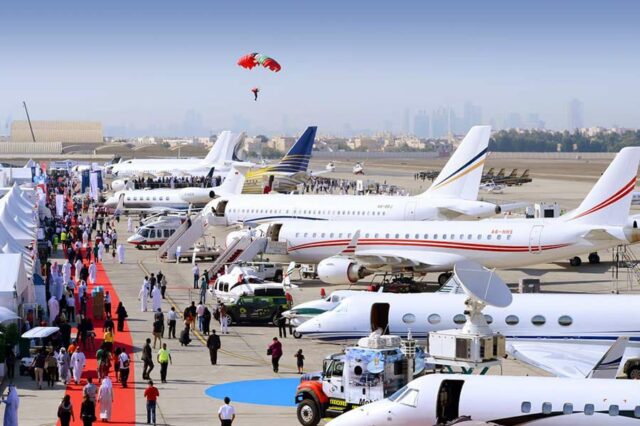

Sheila Sudhakaran, Editor TrendsNAfrica and Africa4U
India-Africa partnership has undergone a significant change in the past decade and strategic cooperation has emerged as an important aspect of it. India has accorded its highest political support to Africa under the present NDA government of Prime Minister Narendra Modi. A bouquet of forward-thinking programmes has been announced by the government, keeping its strategic interests in the African region at the core of its partnership plans.
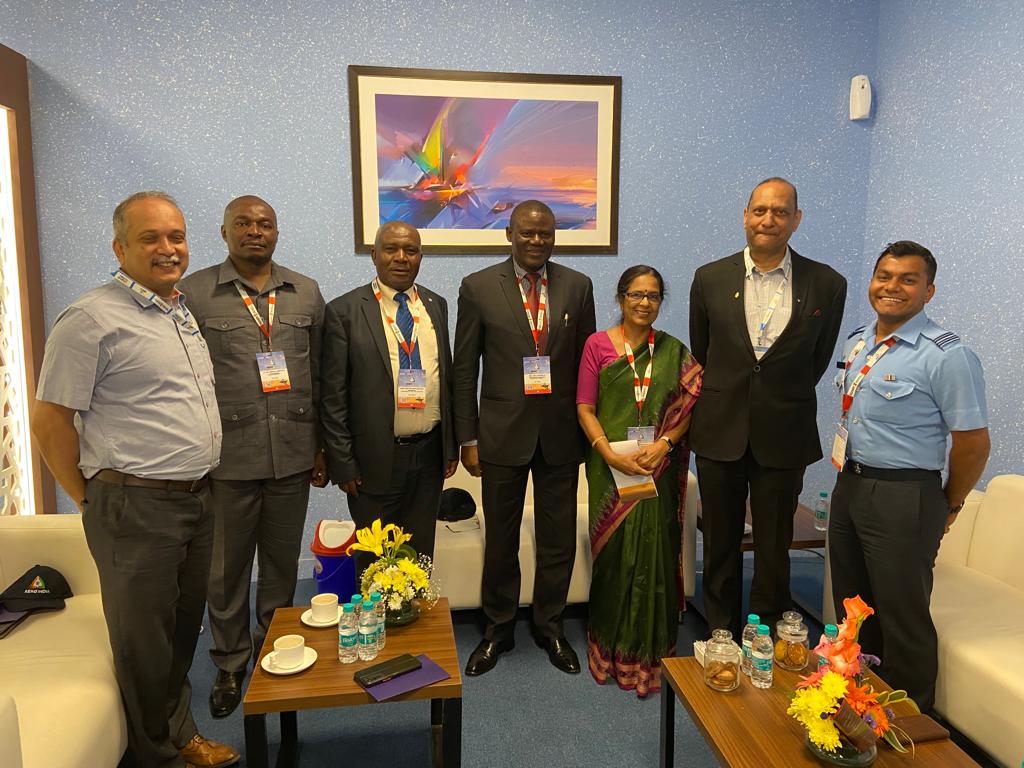
India-Africa partnership has undergone a significant change in the past decade and strategic cooperation has emerged as an important aspect of it. India has accorded its highest political support to Africa under the present NDA government of Prime Minister Narendra Modi. A bouquet of forward-thinking programmes has been announced by the government, keeping its strategic interests in the African region at the core of its partnership plans.
The Indian Parliament was informed in July 2022 that 202 Lines of Credit (L0C) worth US$14.07 billion to cover 357 projects in 42 countries were underway in Africa. More attention is being paid to Africa now, than ever before. Prime Minister Modi’s assertions at various international forums for a Maritime Security, Cybersecurity and fighting international terrorism have set the tone and tenor for tapping opportunities for both government and private sector of India to look more aggressively at developing business opportunities, visibility and partnerships.
With exponential growth in mobile smart device ownership and increased use of social media, Africa’s adoption of new defence technologies is expanding. Cybersecurity is a hot domain, where India’s help is sought. India has advanced cybersecurity infrastructure, a dedicated National Cybersecurity and a functional nodal agency, the Computer Emergency Response Team (CERT-In), under the Ministry of Electronics and Information Technology (MeitY) to provide services to some countries in the region.
The recently-held India-Africa Defence Dialogue (IADD) on the sidelines of DefExpo 2022 on October 18, 2022 and the just-concluded Aero Show in Bengaluru not only highlighted this thought process but also the growing prowess of India’s defence industry. These continued India’s initiatives to build on the existing defence partnerships between African countries and India and also explore new areas of convergence for mutual engagements are welcome steps.
Aero India, a premier exhibition in the global aviation industry, which showcased the country as an emerging hub for manufacturing of military aircraft, helicopters, military equipment and new-age avionics, was attended by several Army top brass from Africa.
Team www.trendsnafrica.com and MAXGRID SECURICOR (INDIA) PVT LTD met select senior military officials from Africa at the Aero Show to understand their perception about deepening India-Africa defence partnership. “Today, with its inherent strength of abundant technical manpower, India has created a robust defence manufacturing ecosystem. Continuous efforts are on to upgrade it with the participation of the military, paramilitary, academia, industry and venture capitalists,” says Mr Belliappa, Director, MAXGRID SECURICOR (INDIA) PVT LTD, adding that the establishment of the Centre for National Security Studies (CNSS) in Bengaluru was a step in this direction. The Centre is a collaboration between the Ramaiah University of Applied Sciences (RUAS) and Army Training Command (ARTRAC), Ministry of Defence, Government of India, which will provide a strong platform for African nations to join and explore mutually important projects and activities.
With a thriving defence manufacturing sector, India wants to expand its global footprint and has set a target of US$5 billion in defence exports by 2025. The continent is viewed as a critical partner in this endeavour. Africa heavily depends on imports from developed countries for most of its defence needs, which is a major drain on its resources. According to the Stockholm International Peace Research Institute (SIPRI), in 2021, African countries together spent US$39.7 billion on military hardware.
Defence experts point out that Africa could benefit tremendously by sourcing Indian defence products and minimising its reliance on traditional western allies for security. “Indian industry has the capacity to meet Africa’s requirements more cost-effectively, particularly in setting up in situ manufacturing ecosystems,” says Col. Pavithran Rajan (Retd).
African defence representatives who participated in the dialogue held concurrently with the Aero Show were keen to scout for defence equipment from India. They feel that Africa can use India’s indigenously developed advanced light helicopters (ALH) and Tejas light combat aircraft to strengthen its combat capability. Indian-made helicopters and Dornier aircraft of Hindustan Aeronautics Limited that meet global standards can be useful for Africa in war and rescue missions. India’s indigenously developed drones also will be useful for civil as well as wartime needs. Military vehicles are another area where India and Africa can collaborate. Indian military vehicles manufacturers such as Tata Motors and Ashok Leyland are the leading players in the sector.
A big chunk of defence equipment is imported from Western countries and Russia at premium prices. Some of them are forced upon them by their ex-colonisers. Defence experts are of the view that Africa can save its scarce foreign exchange by using Indian expertise and spare parts in servicing the imported military equipment, says a high-ranking military expert from an African country, who wanted to remain anonymous. Echoing similar views, another expert maintains that participation of the private sector in India’s defence sector, which is growing, is another plus point. The Indian conglomerates in the sector are tying up with world-renowned defence companies, indicating that India could soon become a major manufacturing hub.
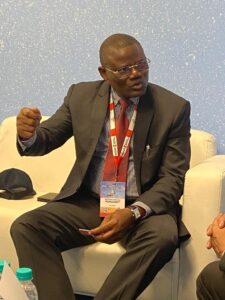
Major General Lukwikila of the Democratic Republic of Congo (DRC) has a different take. He advocated a “hub and spoke” model, wherein his country can act as a hub for India to set up the manufacturing base of defence equipment and spare parts to be supplied to other countries nearby. ‘’Setting up such an ecosystem in countries like DRC could be used to support the requirements of the neighbouring countries,” he stressed. Both Mr K. C. Belliappa and Col. Pavithran Rajan (Retd) endorse this ideation, which is a win-win situation for the stakeholders.
Major General Lukwikila remarked that the DRC can benefit from India’s strength. “There is tremendous potential to raise the level of the existing strategic cooperation in military, and civil cooperation between India and DRC,” he said. Some of the main priorities of DRC in defence cooperation included procurement of spare parts and maintenance of military equipment, procuring ammunition, high-skill training, etc while inviting Mr K. C. Belliappa and Col. Pavithran Rajan (Retd) to visit the DRC for an in-depth study with a view to implementing the above.
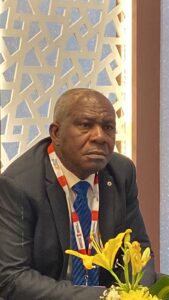
Brigadier General Malibita Balola Maurice from DRC, while concurring with Lukwikila, goes a step ahead. He pointed out management and surveillance of inland waterways, training of pilots, supporting logistics in aviation, etc as some of the other potential areas. India has developed an advanced cybersecurity infrastructure and can collaborate and support Africa in dealing with cyber threats.
India views Africa not as just a market for defence products, but as a potential reliable partner. Capacity building and military training have been a major highlight of India’s cooperation with Africa in the defence sector. “Government of India has been encouraging not only basic military training but also training of specialized forces and training of trainer,” says Mr Belliappa, adding that India has deployed military training teams in a number of African countries in areas such as cybersecurity, maritime security and counterterrorism.
There are a growing number of African countries scouting for Indian defence equipment. Amongst them is Zambia, a southern African country, which has a history of strong traditional ties with India.
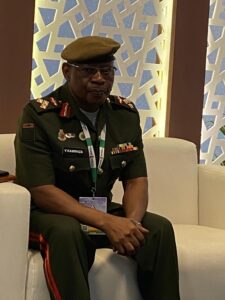
Brigadier General. V Kamvaza from Zambia, whom www.trendsnafrica.com has spoken to, said that the Defence Minister of Zambia was heading a delegation to the Aero Show and discussions were on to strengthen cooperation in defence.
As frontiers of cooperation are expanding, there are newer agendas to chase. A number of African experts whom we have spoken to said that India and Africa should also strengthen the institutional tie-ups. Recently, the Defence Research and Development Organization (DRDO), India and Defence Research and Development Bureau (DRDB), Nigeria, signed an MoU to cooperate in Defence R&D. More such MoUs will promote joint research in the sector.
Compared to traditional security partners of Africa, India is not only keen to share its military power and technological know-how with its African counterparts but also welcomes joint ventures in the African countries. As India modernizes its defence capabilities, its focus is on mutually beneficial co-production and co-development partnerships with Africa.
India’s model of defence and security cooperation is different from others as it is based on empowerment through training, capacity building, and collaboration. With due support from governments of both sides, an increased presence of the private sector and commitment to exploring new areas of convergence for defence cooperation, India and Africa should be able to chart a new course reinforcing economic cooperation. That seems to be the takeaway of the Bengaluru dialogue.










